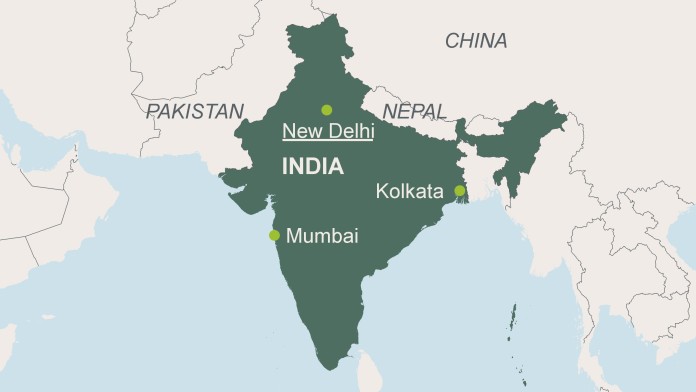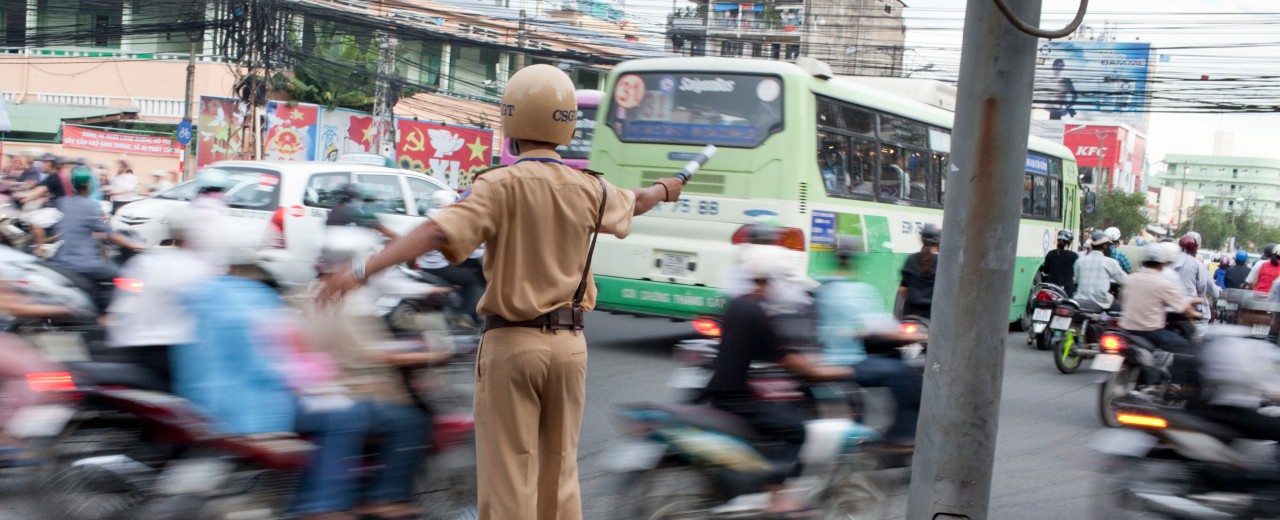
As of: 11/2021
India’s motorisation rate is growing five times faster than its population. The transport sector is therefore also India’s fastest-growing greenhouse gas emitter. The state of Tamil Nadu, with its many urban centres, is setting an example by comprehensively modernising its bus fleet with new, battery-powered e-buses and more energy-efficient diesel models, while also digitalising route planning and bus operations throughout the entire bus sector. These measures are not only easing traffic problems in conurbations, but also reducing greenhouse gas emissions and helping to protect the environment and climate.
More than half (60%) of India’s gross domestic product is generated in the country's large cities. This means increasing prosperity for urban populations, more urbanisation and therefore more traffic. These factors plus an ailing public transport system mean that increasingly more people are opting to use their own cars or motorbikes. This has all the well-known negative consequences for the climate and the air, as well as an increased accident risk.
Existing public transport services and transport infrastructure in Tamil Nadu – as in most states in India – cannot cope with the increasing demand for mobility. In Tamil Nadu, the urbanisation rate is around 34%, i.e. the number of inhabitants in cities and urban agglomerations registered within a period of time in relation to the total population of a certain area.
The most important and, with the exception of the capital Chennai, only public transport system in Tamil Nadu's cities are bus services. The share of buses in overall traffic varies from city to city and is between 10% and 40%. The trend is falling, however, because routes and timetables are not meeting the mobility needs of the urban population and the buses used are outdated, accident-prone and uncomfortable diesel vehicles.

To promote local public transport, KfW, on behalf of the Federal Ministry for Economic Cooperation and Development (BMZ), is supporting the expansion of public transport. The project also aims to counteract the trend towards vehicle ownership and make it easier for poorer people to make their daily journeys. The Tamil Nadu government has therefore decided to comprehensively modernise and restructure its bus sector. The focus is on modernising the bus fleet as well as extensive digitalisation to increase user-friendliness and improve environmental sustainability.
The project focuses on user-friendliness of the entire public transport system. Digitalisation is key here with IT solutions and the relevant hardware and software being implemented to perform operational planning, operational monitoring, maintenance and management information. Modern passenger information systems and cashless ticketing and payment systems (smart cards) are also to be integrated. User-friendliness is also to be enhanced by specially equipping the buses. For example, low-floor buses enable those with limited mobility to move around the city and get to school or work more easily, as well as to access services.
By gradually modernising and expanding the bus fleet in Tamil Nadu, as well as optimising route planning and introducing an integrative, digital passenger information system, public transport will become more attractive and help to counteract further personal motorisation. The project represents a major innovation boost for the bus sector, which will help to reduce the heavy pollution in Indian cities. The goal is to transport an additional 600,000 passengers per day and by introducing new diesel and electric buses to save 2,900 tonnes of CO2 per day.
The project will also help improve the overall efficiency, safety and cost-effectiveness of bus operations in the state and contribute to making cities more attractive places to live in as well as more inclusive and sustainable. Low-income households and persons with impaired mobility will particularly benefit from secure and reliable public transport systems by enabling them to participate more in economic and social life.
The project contributes to the achievement of these following United Nations Sustainable Development Goals:
Share page
To share the content of this page with your network, click on one of the icons below.
Note on data protection: When you share content, your personal data is transferred to the selected network.
Data protection
Alternatively, you can also copy the short link: kfw-entwicklungsbank.de/s/enzBtyo4
Copy link Link copied